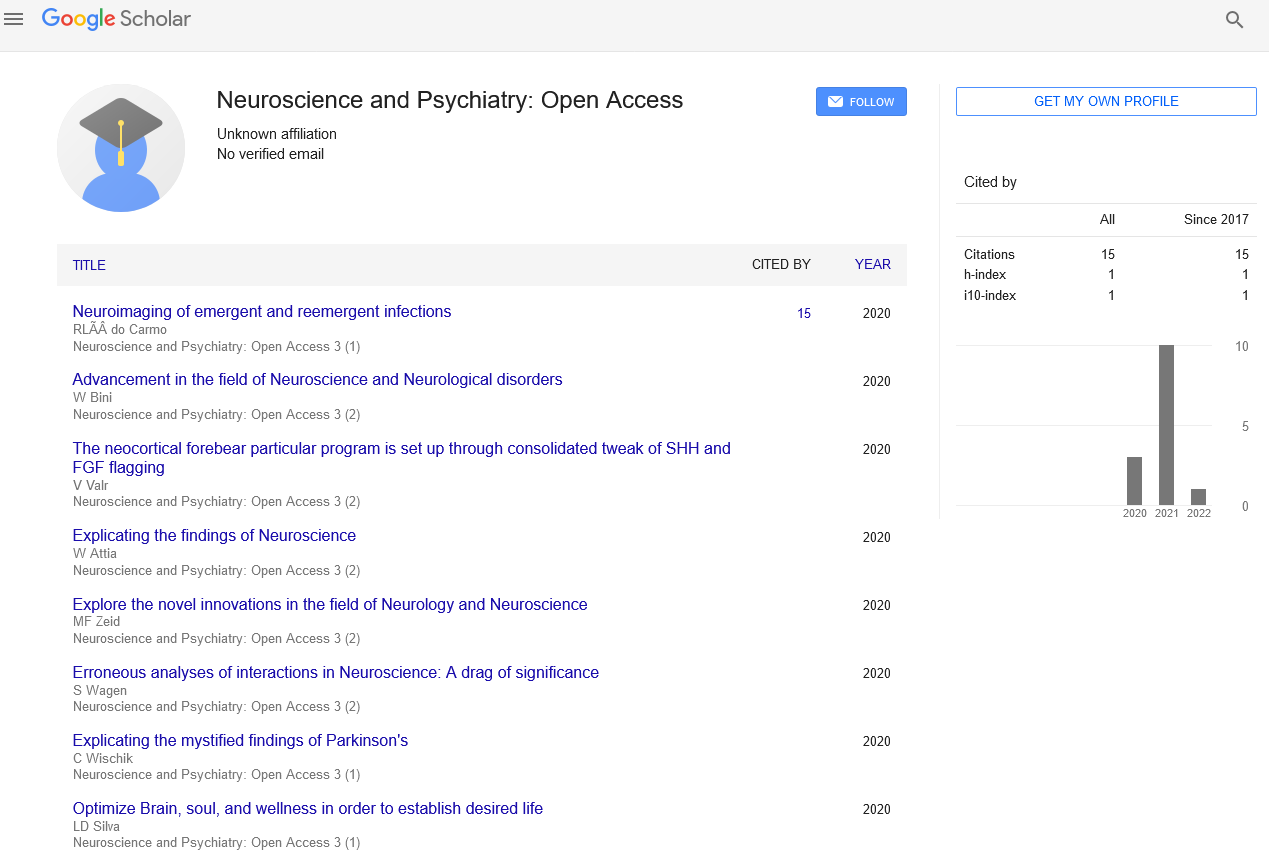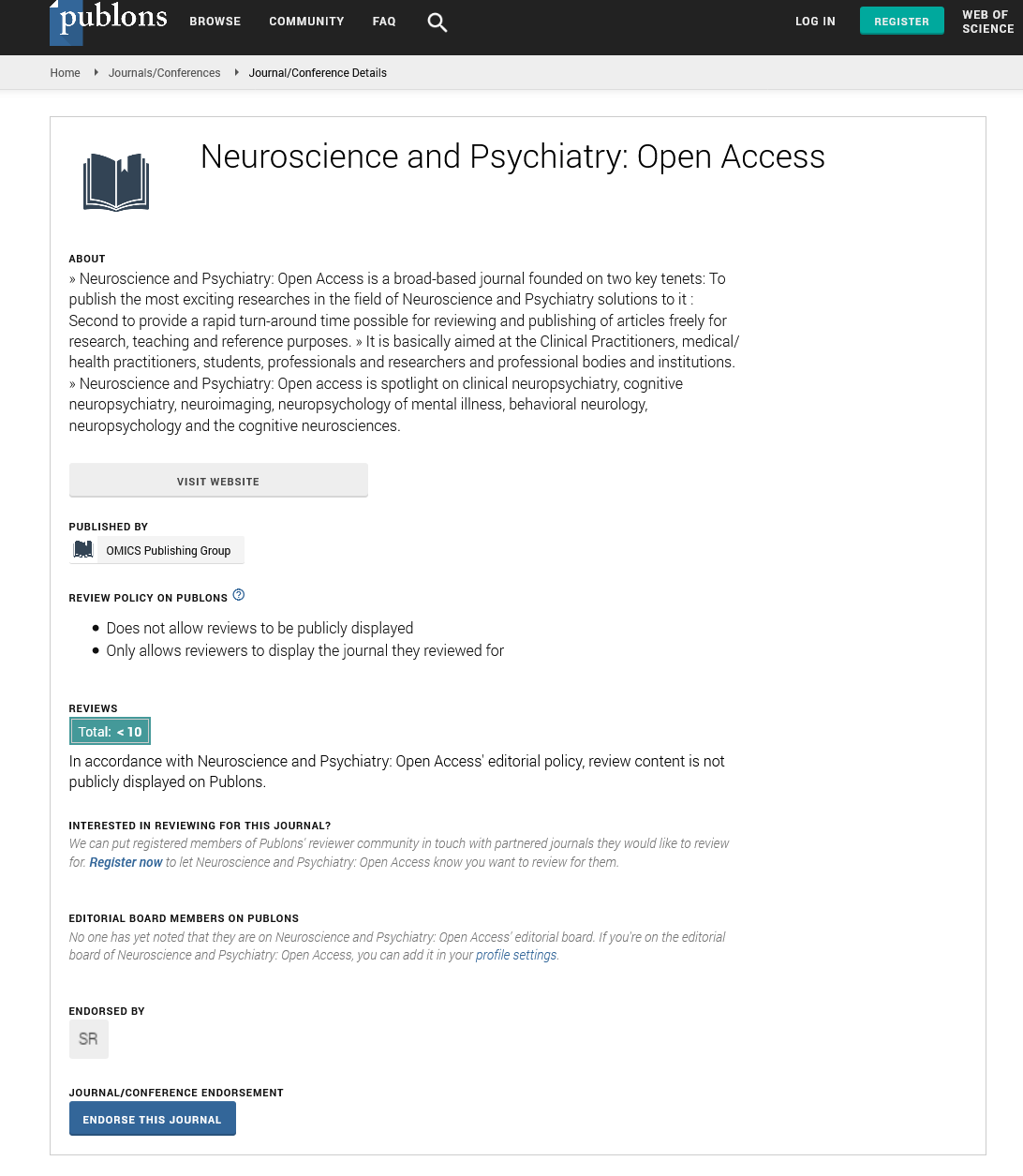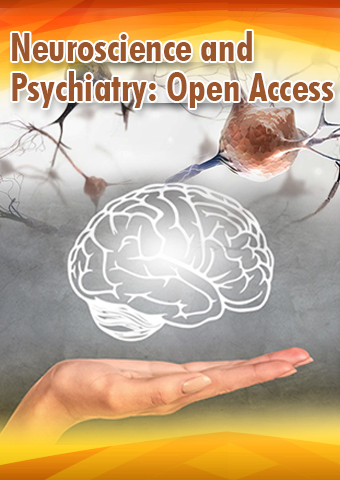Perspective - Neuroscience and Psychiatry: Open Access (2024) Volume 7, Issue 6
Sleep and Its Impact on Brain Function: A Neuroscientific Perspective
- Corresponding Author:
- Adam Walker
Department of Neuroscience,
Queensland Brain Institute,
University of Queensland,
Queensland,
Australia
E-mail: adam.walk@deakin.edu.au
Received: 12-11-2024, Manuscript No. NPOA-24-148645; Editor assigned: 15-11-2024, PreQC No. NPOA-24-148645 (PQ); Reviewed: 29-11-2024, QC No. NPOA-24- 148645; Revised: 10-12-2024, Manuscript No. NPOA-24-148645 (R); Published: 17-12-2024, DOI: 10.47532/npoa.2024.7(6).287-289
Introduction
Sleep is a fundamental biological process essential for survival, affecting nearly every aspect of human health, especially brain function. From cognitive performance to emotional regulation and memory consolidation, sleep plays a crucial role in maintaining the brain’s overall well-being. Neuroscientific research has significantly expanded our understanding of how sleep impacts the brain at both the cellular and systemic levels, revealing that the consequences of sleep deprivation are as far-reaching as the benefits of good sleep. This article explores the neuroscience of sleep, its stages, and its impact on brain function, including memory, cognition, emotional regulation, and overall neural health.
Description
The neuroscience of sleep: Stages and cycles
Sleep is divided into two primary phases: Rapid Eye Movement (REM) and Non-Rapid Eye Movement (NREM) sleep. These two phases alternate in cycles throughout the night, each playing distinct roles in brain function.
• NREM sleep: NREM sleep consists of three stages (N1, N2, and N3), with N3 being
the deepest stage. This phase is characterized by slow brain waves, reduced muscle activity,
and the absence of eye movement. NREM sleep is critical for physical restoration, immune
system function, and the removal of metabolic waste products from the brain.
• REM sleep: REM sleep, marked by rapid eye movements and increased brain activity, is often
referred to as “paradoxical sleep” because the brain is highly active, similar to wakefulness,
yet the body remains immobile due to muscle atonia. This phase is strongly linked to vivid
dreaming and is crucial for emotional regulation, memory consolidation, and creativity.
• Understanding the architecture of sleep is essential for grasping its relationship with various
brain functions, as each stage contributes to distinct processes that optimize cognitive and
emotional health.
Memory consolidation and sleep
One of the most well-established functions of sleep is its role in memory consolidation. During wakefulness, the brain acquires information, but it is during sleep that the brain organizes, integrates, and strengthens these memories. Sleep impacts both declarative memory (facts and experiences) and procedural memory (skills and habits).
• Declarative memory: NREM sleep, particularly Slow-Wave Sleep (SWS), is associated with
the consolidation of declarative memories, which include episodic (personal experiences)
and semantic (factual knowledge) memories. During sleep, the hippocampus, a brain region
involved in memory formation, replays and transfers newly acquired information to the
neocortex, where long-term storage occurs. This process enhances the stability of memories
and improves recall.
• Procedural memory: REM sleep, on the other hand, plays a crucial role in consolidating procedural memory, which involves motor
skills and tasks. For example, studies have
shown that individuals who practice a new
skill or activity (such as playing a musical
instrument or learning a sport) show
significant improvement after a night of
sleep compared to those who remain awake.
REM sleep facilitates the refinement and
coordination of motor skills by reinforcing
neural circuits involved in these tasks.
• Emotional memory: Sleep also enhances the processing of emotional memories, helping the brain integrate emotions with past experiences. REM sleep, in particular, is crucial for regulating emotional responses and processing emotional events, making it essential for mental well-being and emotional resilience.
Cognitive performance and sleep
Sleep is intricately linked to various cognitive functions, such as attention, decision-making, problem-solving, and creativity. Adequate sleep enhances cognitive performance, while sleep deprivation impairs these abilities.
• Attention and focus: During sleep, the brain clears metabolic waste products and toxins, such as beta-amyloid, which accumulate during wakefulness and can interfere with cognitive functions. As a result, a wellrested brain is more capable of maintaining sustained attention, focus, and alertness. Sleep deprivation, on the other hand, leads to difficulties in concentrating, increased reaction times, and a higher likelihood of making mistakes.
• Decision-making and problem-solving: Sleep improves the brain’s ability to make complex decisions by enhancing prefrontal cortex activity, which is responsible for higher-order thinking. Well-rested individuals are better at weighing different options, considering future consequences, and making reasoned choices. Sleep deprivation, in contrast, impairs prefrontal cortex function, leading to impulsive decision-making and increased risk-taking behavior.
• Creativity and insight: Sleep, particularly REM sleep, has been shown to foster creativity by enhancing divergent thinking and problem-solving through novel connections between disparate pieces of information. Dreams, which occur primarily during REM sleep, may provide a mechanism for the brain to explore new solutions to problems. Research suggests that REM sleep allows the brain to reorganize and integrate information in a way that promotes insight and creativity.
Emotional regulation and sleep
Sleep has a profound impact on emotional regulation, helping individuals manage stress, anxiety, and mood. Lack of sleep disrupts the brain’s ability to regulate emotions, leading to increased irritability, mood swings, and heightened emotional reactivity.
• Amygdala and prefrontal cortex: The amygdala, a brain region responsible for processing emotions such as fear and anger, becomes more reactive when sleep-deprived. Studies show that individuals who have not slept well exhibit exaggerated responses to negative stimuli, such as heightened anger or fear. In contrast, the prefrontal cortex, which normally helps regulate the amygdala, becomes less active during sleep deprivation, making it harder to control emotional responses.
• Mood disorders and sleep: Chronic sleep disturbances are strongly linked to mood disorders such as depression and anxiety. Insufficient sleep disrupts the balance of neurotransmitters, such as serotonin and dopamine, which are involved in mood regulation. As a result, sleep-deprived individuals are more likely to experience symptoms of depression, anxiety, and irritability. Conversely, improving sleep quality can help alleviate mood disorders by restoring normal brain function and emotional balance.
• Emotional resilience: Sleep enhances emotional resilience by helping the brain process and integrate emotional experiences. REM sleep, in particular, plays a key role in processing emotional memories, reducing the emotional intensity associated with stressful events. This process helps individuals recover from emotional distress and cope better with future challenges.
Sleep and brain health: Neuroplasticity and neuroprotection
Sleep is vital for maintaining the brain’s long-term health by promoting neuroplasticity and providing neuroprotective effects. Neuroplasticity, the brain’s ability to reorganize and adapt, is essential for learning, memory, and overall cognitive function.
• Neuroplasticity: During sleep, the brain undergoes synaptic pruning, a process where unnecessary or weak synaptic connections are eliminated, while important connections are strengthened. This allows the brain to optimize its neural networks, ensuring that only the most relevant information is retained. Sleep also promotes the formation of new synaptic connections, which is crucial for learning and memory consolidation.
• Neurogenesis: Sleep also supports neurogenesis, the process of generating new neurons in the brain, particularly in the hippocampus, a region critical for memory. Studies suggest that sleep deprivation inhibits neurogenesis, leading to impaired memory and cognitive decline.
• Neuroprotection: Sleep provides a neuroprotective effect by allowing the brain to remove toxic waste products that accumulate during wakefulness. One of the key functions of sleep is to facilitate the brain’s “glymphatic system,” which clears out metabolic waste products, including beta-amyloid, a protein associated with Alzheimer’s disease. Chronic sleep deprivation has been linked to an increased risk of neurodegenerative diseases, such as Alzheimer’s and Parkinson’s, due to the accumulation of toxic proteins and impaired neural repair mechanisms.
The consequences of sleep deprivation
Sleep deprivation, whether acute or chronic, can have serious consequences on brain function and overall health. The effects of insufficient sleep are cumulative, leading to a range of cognitive, emotional, and physiological impairments.
• Cognitive impairments: Sleep deprivation affects attention, learning, memory, and decision-making. Even a single night of poor sleep can result in slower reaction times, impaired judgment, and decreased problem-solving abilities. Chronic sleep deprivation further exacerbates these effects, leading to long-term cognitive decline and an increased risk of dementia.
• Emotional dysregulation: Individuals who are sleep-deprived are more prone to mood swings, irritability, and anxiety. They may also have difficulty managing stress and exhibit increased emotional reactivity. Chronic sleep deprivation is a risk factor for developing mood disorders such as depression and anxiety.
• Health risks: Sleep deprivation has been linked to a range of health issues, including weakened immune function, increased inflammation, cardiovascular disease, and metabolic disorders such as diabetes. The brain’s inability to clear waste products during sleep may also increase the risk of neurodegenerative diseases.
Conclusion
The genetics of Major Depressive Disorder (MDD) provide valuable insights into the etiology and potential treatment of this complex condition. Genetic markers, heritability estimates, family studies, twin studies, and geneenvironment interactions all contribute to our understanding of the genetic underpinnings of MDD. Advances in genetic research have the potential to improve diagnosis, personalize treatment, and inform prevention strategies. As research progresses, a more comprehensive understanding of the genetic and environmental factors contributing to MDD will likely emerge, offering hope for better outcomes for individuals affected by this debilitating disorder.


